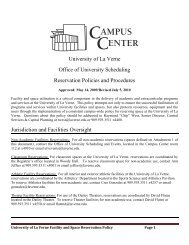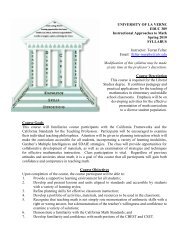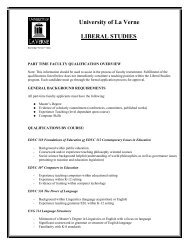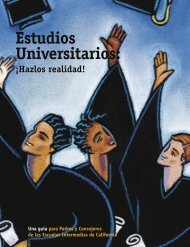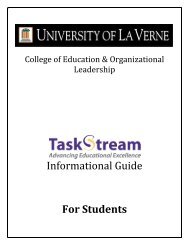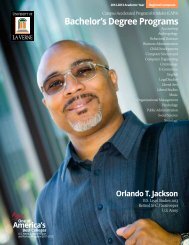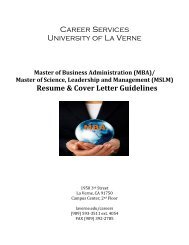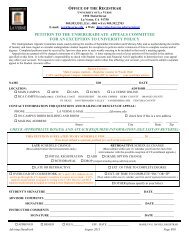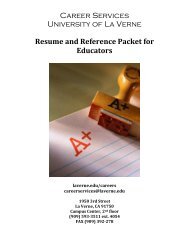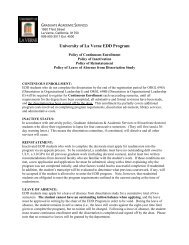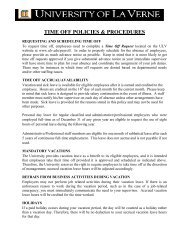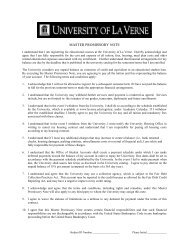College: Making It Happen - CaliforniaColleges.edu
College: Making It Happen - CaliforniaColleges.edu
College: Making It Happen - CaliforniaColleges.edu
You also want an ePaper? Increase the reach of your titles
YUMPU automatically turns print PDFs into web optimized ePapers that Google loves.
When should my child start saving for college?<br />
If you involve your children in planning during the early years, whether that means<br />
opening a savings account for each of them or dropping pennies in the piggy bank<br />
on a regular basis, they will be more likely to take an active interest in their <strong>edu</strong>cation.<br />
As soon as they are old enough to handle the responsibility of a paying job, plan<br />
that a portion of their earnings goes into a college savings account. In this way, they,<br />
too, will be invested in their future <strong>edu</strong>cation and contribute to the goals of your entire<br />
family.<br />
Are there any tax-free savings accounts for <strong>edu</strong>cation?<br />
The ScholarShare <strong>College</strong> Savings Plan is a tax-advantaged savings program sponsored<br />
by the ScholarShare Investment Board, an agency of the State of California.<br />
Anyone can open an ScholarShare account on behalf of a student and start saving<br />
for college with an initial contribution of $50, or just $15 per month with automatic<br />
investments. Distributions are federal and state tax-free when used for qualified<br />
higher <strong>edu</strong>cation expenses at virtually all accredited colleges and universities<br />
nationwide and eligible foreign institutions. For students who earn a scholarship,<br />
the scholarship amount can be withdrawn from your ScholarShare account and the<br />
10 percent federal penalty tax would not apply. However, the earnings would be subject<br />
to any other applicable taxes, including federal income tax. For more information,<br />
visit www.scholarshare.com or call toll-free 1-800-544-5248.<br />
How can I learn more about financial aid?<br />
Attend financial aid meetings held in your school district to learn more about the<br />
basic types of financial aid and ways to apply by the deadlines. Many corporations,<br />
labor unions, professional associations, religious organizations, and credit unions<br />
provide scholarships. Contact the specific organization or main headquarters directly<br />
to apply.<br />
In addition, some organizations, particularly foundations, offer scholarships to<br />
students of specific racial or ethnic backgrounds, geographical areas, religions,<br />
genders, talent, etc. Use your nearest public library and look for directories that list<br />
such scholarships or see Chapter 6 in this handbook.<br />
What if my child doesn’t qualify or receive any grants<br />
or scholarships?<br />
All students have access to deferred, low or no-interest loans from individual<br />
colleges and the federal government. Some loan programs provide loan cancellation<br />
benefits for graduating students who teach certain subjects or teach in certain<br />
schools. Regardless of qualification, all students should apply for financial aid.<br />
18



